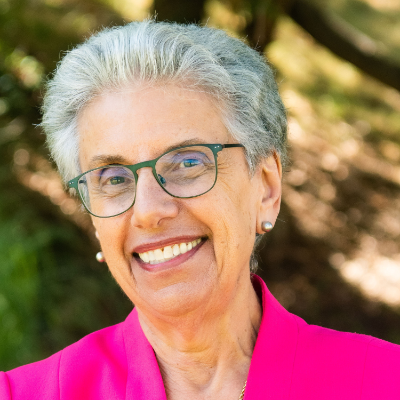
Many mental wellness programs in schools use a direct service model that gives students access to counseling and other services. While this approach is necessary and useful for individual youth in dire need of support, it does not account for the pipeline leading up to critical needs, nor is it designed to address the long-term sustainability of short-term interventions.
The Center for Catholic Education (CCE) at LMU School of Education is embracing an opportunity to do things differently. “Fostering Culture” is a pilot mental wellness program CCE has recently established in a dozen Catholic schools serving under-resourced families in Los Angeles. The implementation team includes Sister Rosemarie Nassif, SSND, Ph.D., executive director of CCE; Lauren Casella, Ed.D., clinical assistant professor and director of LMU‘s Catholic School Leadership Academy; Brian Leung, Ph.D., professor emeritus of school psychology; and Kara Lemma, Ph.D., senior researcher.

Fostering Culture expands the direct services model by building a school’s entire culture around wellness, says Nassif. The program is designed to allow for equitable mental health support for all students, regardless of their level of need. It begins with grade-specific curriculum training and professional development sessions for teachers. “Teachers are often the first to notice if students are behaving differently or if their grades are dropping,” says Nassif. “They benefit from learning how to identify students who are at risk or in need of counseling. And they’re also given tools for safeguarding their own mental health. Teaching is a challenging career even in the best of times.”
Administrators and parents have also been directly engaged in Fostering Culture so they can support children outside of the classroom. The CCE has conducted baseline surveys of teachers and parents at the program’s outset, and will repeat them after two years of implementation to assess their perceptions of differences in student behavior. Lessons led by professional counselors and school-wide retreats round out the offerings.
Teachers have embraced the program enthusiastically so far. “The course helped me find new ways to connect with students and redirect them in a positive manner. It also helped to make connections between my own growth and the responsibility of passing it on to my students,” one said. Another noted, “It made me realize that I am in control—even if I have a negative thought, I can change the way I feel. It helped me stay calm as an educator.”
Nassif and her colleagues gave a well-received presentation about Fostering Culture at the NCEA Catholic Leadership Summit in North Carolina on October 25, 2023. ”Youth today are experiencing trauma that has been exacerbated through COVID and amplified by social media,” she says. “Suicide is the second highest cause of death in youth. We hope this program offers all students the tools and knowledge they need to process difficult emotions and relieves some of the stressors of being a young person today.”



